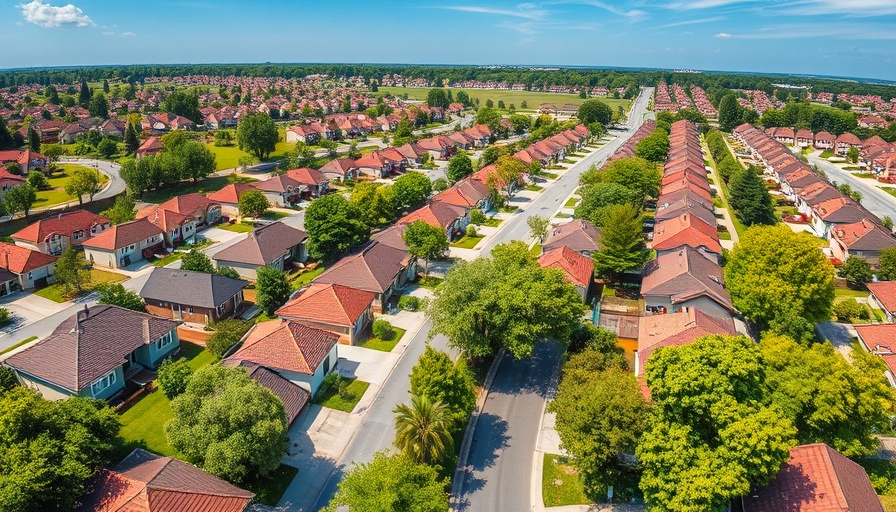
Understanding Master-Planned Communities: What They Are
If you've ever come across a neighborhood that seems to have it all—parks, shops, schools, and recreational facilities—you may have stumbled into a master-planned community (MPC). These large-scale developments are not just clusters of homes but intricately designed neighborhoods that aim to create a cohesive living experience. The vision behind an MPC is to offer residents the convenience of having essential amenities within close proximity, creating a sense of community while catering to modern lifestyles.
Appealing Amenities: A Highlight of Master-Planned Communities
One of the most attractive features of master-planned communities is their diverse range of amenities designed to enhance the quality of life for residents. From golf courses to swimming pools and fitness centers, communities often include facilities that encourage both relaxation and social interaction. Many MPCs also feature walking trails, parks, and community centers that host events. This makes mingling with neighbors and participating in community activities easy and enjoyable.
For families, having nearby schools, playgrounds, and recreational areas is particularly appealing. These amenities are typically maintained by a homeowners association (HOA), which collects fees from homeowners to ensure upkeep. This can add a layer of comfort for those looking to settle down, as it alleviates concerns over maintenance in public spaces.
The Financial Landscape of Master-Planned Communities
However, potential buyers should be aware that living in a master-planned community often comes with higher costs. Besides the mortgage, residents are typically required to pay monthly HOA fees that can range widely—from $100 to over $1,000 depending on the community's location and the amenities provided. It’s essential for homebuyers to include these costs in their budget as they can significantly impact overall affordability and financial planning.
Master-Planned Community vs. Traditional Neighborhoods: What’s the Difference?
Perhaps you're wondering how a master-planned community differs from a traditional neighborhood. While both may offer houses and essential services, the defining factor lies in the planning process. MPCs are designed with an overarching vision intended to create a harmonious lifestyle and often include mixed-use spaces and a variety of zoning options, while traditional neighborhoods tend to evolve organically without a comprehensive plan.
The Bottom Line: Are Master-Planned Communities Worth It?
Deciding if a master-planned community is right for you ultimately hinges on personal preferences and lifestyle needs. With their structured environments and a wealth of amenities, they can suit those seeking convenience and community engagement. However, potential buyers should anticipate the premium costs and carefully consider the trade-offs.
Future of Master-Planned Communities: Trends to Watch
As more individuals prioritize work-life balance, the demand for master-planned communities is on the rise. Developers are increasingly focusing on sustainability, integrating green spaces, energy-efficient housing, and smart home technology into new projects. The future may see even more innovative designs that cater to evolving habits and preferences, particularly as remote work continues to shape where and how we live.
Actionable Insights for Future Homebuyers
If you're considering moving to a master-planned community, take the time to thoroughly research various options. Compare amenities, speak with current residents, and fully understand the fee structures and any restrictions imposed by the HOA. This due diligence will help ensure that your new home is a perfect fit.
As you navigate the real estate market, whether you're using platforms like Zillow, Redfin, or connecting with a local realtor, remember that understanding the nuances of the community you choose can pave the way for a fulfilling life. So, as you embark on your house-hunting journey, equip yourself with knowledge to make an informed decision.
 Add Row
Add Row  Add
Add 



Write A Comment